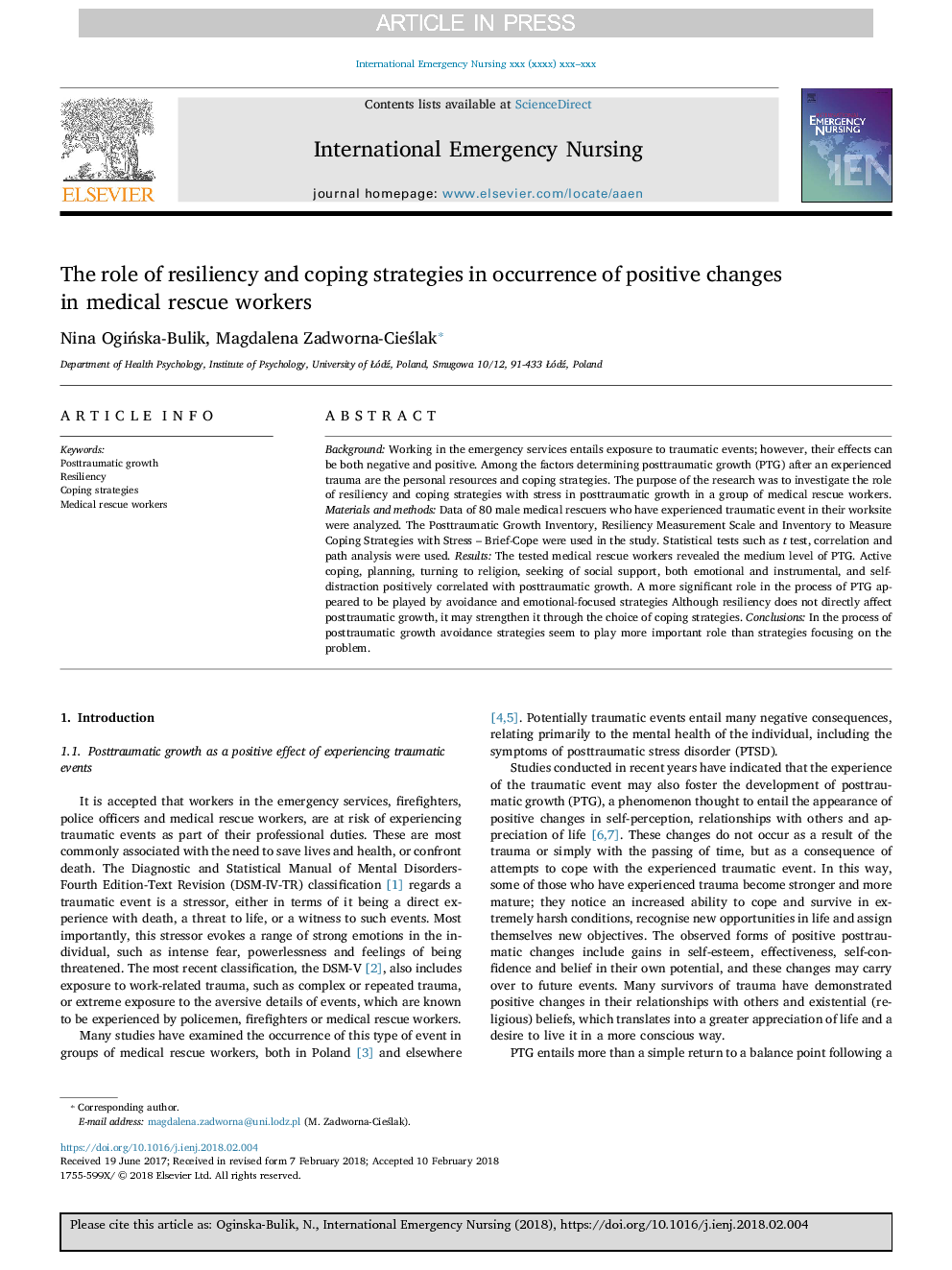ترجمه فارسی عنوان مقاله
نقش استحکام و استراتژی های مقابله ای در بروز تغییرات مثبت در نجات کارگران پزشکی
عنوان انگلیسی
The role of resiliency and coping strategies in occurrence of positive changes in medical rescue workers
| کد مقاله | سال انتشار | تعداد صفحات مقاله انگلیسی |
|---|---|---|
| 109616 | 2018 | 6 صفحه PDF |
منبع

Publisher : Elsevier - Science Direct (الزویر - ساینس دایرکت)
Journal : International Emergency Nursing, Available online 14 February 2018
ترجمه کلمات کلیدی
رشد پس از قاعدگی، انعطاف پذیری، استراتژی های مقابله، نجات دهنده های پزشکی،
کلمات کلیدی انگلیسی
Posttraumatic growth; Resiliency; Coping strategies; Medical rescue workers;

